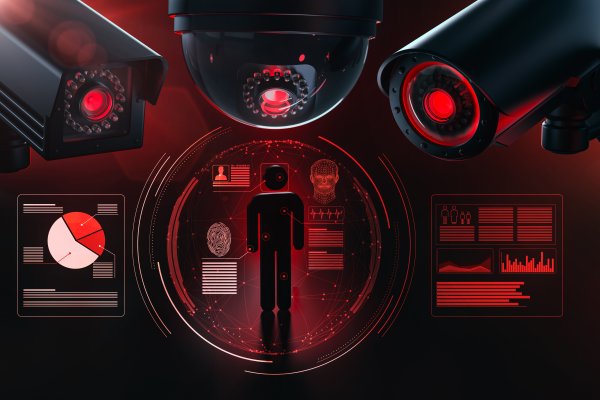How Companies Are Secretly Monitoring Remote Workers
Tags: opinion

Companies collect data on their customers to market their goods and services to them. They even sell their data to third parties. This is known as “Surveillance Capitalism”.
It might sound creepy to laymen but is very common.
The number of companies that collect data on their employees is growing every day, even while they are at work.
This particular trend had privacy experts concerned.
SUBSCRIBE TO THE TRUTH THEORY YOUTUBE CHANNEL, CLICK HERE
How Are The Companies Watching You?
Millions of Americans have shifted their workstation from their offices to their homes, which has forced the companies to use high-tech software to track them.
They are tracking what they are actually doing every day and every minute.
Brian Kropp’s Thoughts On This Surveillance
It has almost been two years since these companies were forced to send their workers home, all thanks to the global pandemic.
READ: THIS COMPANY MAKES 3D PRINTED PROSTHETICS FOR YOUR BELOVED PETS
Brian Kropp, who is the Vice President of Research for Gartner stated:
“One of the biggest concerns that executives had when the pandemic first started is that we’re going to move all of these employees to work from home, and all that’s going to happen is that they’re going to take naps during the day.”
Brain Kropp is the one that conducts research on trends in HR for Gartner.
Kropp estimated that less than 30% of the largest companies (Fortune 1000) in the States used some sort of tracking software, even before the pandemic. That number has now jumped to 60%.
The surveillance is not necessary for every employee but only for some segments, as per Brian. He added that employees were also trying to outwit that technology.
A certain “mouse jiggler” went viral on social media and was developed by a company in Austin, Texas. It sells for less than $30 to counter employee monitoring and appears that one is busy working.
HELP US TO CREATE MORE CONTENT, JOIN US ON PATREON
The employees do not have legal protection in these things as the companies have access and right to all that information. So, all the emails, and messages are being warehoused and captured. If the phone is provided by the employer then the companies can track that too.
Albert Fox Cahn is a lawyer, an activist on privacy and technology issues, and the founder of the Surveillance Technology Oversight Project, also known as STOP. Cahn says laws have failed to keep up with the threat to privacy surveillance tools pose.
He stated:
“ If you’re just checking how many times someone is clicking a key at their keyboard, that doesn’t tell you if they’re doing a good job. Reducing every aspect of our work life to a set of numbers gives you terrible data and gives you terrible employee satisfaction. And it’s really incumbent on the states, and even local governments, to protect workers from these sorts of tools. This is why we call the states “laboratories of democracy,” because they are oftentimes the first to try out new legislation.
At least seven states, including New York, have laws governing employee monitoring, ranging from simply informing employees they are subject to surveillance, to banning non-consensual home surveillance and biometrics.”
He added, “Biometric data can be re-sold. That’s the information about any part of our body: our face, our iris, our retina, even the way we walk. There are facial recognition vendors that are collecting not millions, but billions of photos of all of us in order to create tracking tools that they can sell to police, sell to corporate customers, and sell to basically anyone willing to pay.”
Cahn ended with: “ All of that data is being stored in giant repositories on corporate servers and in the cloud. And all of it is susceptible to hacking, extortion, and all the other harms that come when people can access our information. So when we think about these pools of data, it’s not just a gigantic land mine for the employees whose lives are being documented; it’s potentially a huge source of liability for the companies that collect it and could lose control of it.”
Image credit: 123RF

Leave Comment: